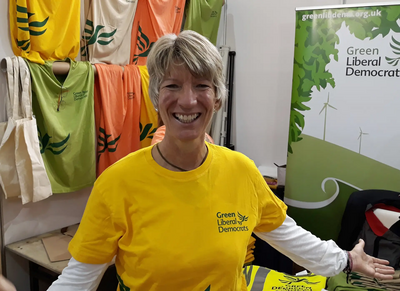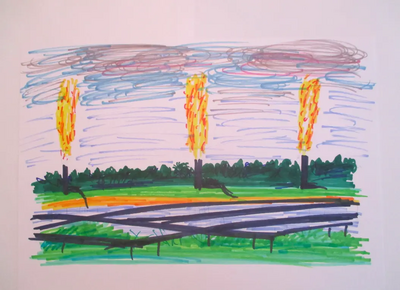Incinerators - Energy from Waste

"Incineration of waste and new facilities - a good idea to get on top of the mountain of plastic waste, or a pollution problem?"
Asks Jason Billin on our GLD Members facebook group.


New incinerator planned at Ratcliffe on Soar (Notts)
Pippa Heylings replied:
Jason,
thanks for your question and it is one that has been the subject of one of our LD Climate Cluster weekly sessions with Wera Hobhouse, MP, who was until just last week our Spokesperson for Climate and Environment.
We came to the conclusion that we are not opposed to EfW (Energy from Waste) in principle.
However, EfW should not be the first choice because it is the most carbon-intensive of operations so it deals with residual waste and reduces landfill presssure but is damaging to our zero carbon targets.
Also, that it is at the bottom of our waste/resource management hierarchy where we should first look to reduce overall landfill and residual waste wherever possible by improved reduction, re-use and recycling.
There is data that shows that if we manage to get recycling levels to 75% across the country, then we actually have ENOUGH incinerators in the country already to deal with the residual waste produced.
By leaving EfW incinerators as a private sector issue, individual developer proposals have no incentive to look at existing supply locally, regionally or nationally.
There is a perverse incentive designed into EfW that does not encourage improved recycling because the incinerator is a hungry beast.
Also the PFI contracts lock Councils into 15-20 year contracts at a time when, with new legislation, there could be a disruptive shift in the amount of waste needing to be incinerated over the next decade.
There is also concern about particulate pollution which is often rebuffed by the developers.
They often speak truth but the point is that the regulations surrounding air quality monitoring does not require the monitoring of ultra-fine particulates.
Some important research has come about after dogged Parliamentary questioning by former MP, David Drew.
www.circularonline.co.uk/news/important-caveats-omitted-from-incinerator-health-dangers-group-claims/
Scientific evidence has shown that the real dangerous impact of incineration comes from the smallest particles, PM0.1 and PM1, because they are absorbed into the bloodstream through the lungs.
These particles are too small to be filtered and are therefore emitted directly into the air that we breathe.
The Government has refused to recognise this, as Drew discovered, which is why there is no required monitoring of ultra-fine particulates which means that incinerators can be policy-compliant and declare themselves safe.
However, it is because the regulations themselves are deficient.
Technological research has also shown that only 1 in 5 of existing incinerators use the waste heat generated and none of them capture and recover/recycle the particulates generated.
Nevertheless, there could be a future solution to make those EfW that we do need overcome these barriers and truly be part of the Circular Economy but this would require giving local authorities powers over emissions and circularity and also resources to plan and deliver heat mapping around heat incinerators, whilst building a network of regional Resource Recovery Centres (for recovery of the heat and the particulates).
We had an excellent presentation from the Energy Research Accelerator (ERA) and the Birmingham Energy Institute who have launched a policy commission to examine the state of play, barriers, challenges, and opportunities for Energy from Waste (EfW) to form part of the regional energy circular economy in the Midlands.
This policy commission explores the case for regional investment whilst helping shape the regional, local government and industry thinking surrounding critical issues such as fuel poverty and poor air quality.
https://www.birmingham.ac.uk/research/energy/policy/energy-waste-circular-economy.aspx
and see a great explanatory video here: https://youtu.be/TzGc5TSEDgg
